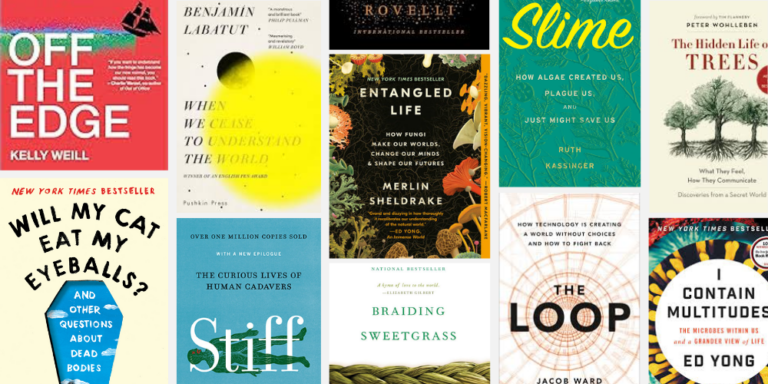I have long been skeptical of the “One Word” promises made at the turn of the new year.
On one hand, I totally get it; it’s an efficient way to stay focused on personal improvement. And like any goal setting, focus is essential to success; we often try to do too much with our goals — personally and professionally. In that respect, I see the value. However, the scope of one word seems, in some ways, too focused. I’ve struggled to see how a one-word focus would truly help me become a better me, a better teacher. But with this said, I also had no suggestion for a different approach.
So, as 2017 faded into the cold and dreary new year backdrop of 2018, I sat down to do my usual new year reflection and goal setting, resigning myself to this seemingly too-narrow approach for lack of a more effective strategy. It was while I scribbled in my writer’s notebook, jotting down key words and phrases that captured elements of my personal and professional growth that I hope to see improve in 2018, when the music in the background, which is always playing when I write, shuffled to a different song, grabbing my attention in a way it never had before. Having heard this song well over 100 times already, I couldn’t believe the way it was now inspiring my goal setting.
Kill a Word
It seems so simple. Eric Church spends three minutes and 19 seconds sharing all of the words he wishes were gone, that would improve our society and our lives.
Regret, hate, fear, loneliness, heartbreak, disgrace, lies, evil…
His list goes on and on with the general argument that, “You can’t unhear, you can’t unsay…” This is when I realized, or maybe fully gave thought to, the fact that there are so many words in education that are much more than words.
They are roadblocks and restrictions, labels and limits; they force students into systems and stereotypes, preventing and (unfairly) predicting. And, much like Eric Church argues, once our teachers say these words, they can’t be unsaid. Even worse, once our students hear these words, they can’t be unheard.
The language we use really does impact our learning environments.

VIDEO: Micromessages in the STEM Classroom
So the scribblings in my writer’s notebook quickly turned to all the words in education I’d want to kill. Some of them focused on teachers’ beliefs and practices, others on students and the ways our systems impact their potential. I scribbled for a good hour, jotting down words and phrases, exploring my own beliefs on a wide range of edu-words.
Honors, remedial, gifted, struggling reader, (standardized) testing, ability, can’t, grades…
My writings were passionate and personal, inspired and imaginative. I felt a bit like Jerry Maguire when he got rolling with his mission statement, and when I was done, I took a second to just breathe a bit, to let it all set in. That’s when the phrase “addition by subtraction” began to echo in my mind.
I started asking myself, how much better could education be if we got rid of X?
And that’s when it hit me. My new year plan was now sitting in my notebook, staring at me. The decision was simple; I wouldn’t focus this new year on my own personal “one word,” but instead, on the one word in education that I’d like to kill. Of course, some of these words represent systems that are much bigger than one educator, outside the locus of one person’s control. But change has to start somewhere, even if that starting place is inside the mind and heart of one educator’s linguistic choices.
So it’s with all this said that I proudly proclaim that I’ve killed the word “ability.” I know that in the differentiated instruction circles, this word has been, with some success, replaced by “readiness,” but even that falls short of my hopes. It’s my sincere hope that, if nothing else, internally within my own thinking and practice, killing “ability” leads me to more consistently and confidently look at students for their potential, always pushing them towards what can be as opposed to what is, what might be as opposed to what other systems and labels have told them that they are.
Perhaps you began this new year with a one-word focus, but as January comes to a close I invite you to also think about the one word you can kill to improve teaching for you and learning for your students.
Will you join me in killing an edu-word in 2018? If so, join the conversation in the comments below and on Twitter using the hashtag #2018edukillaword.







